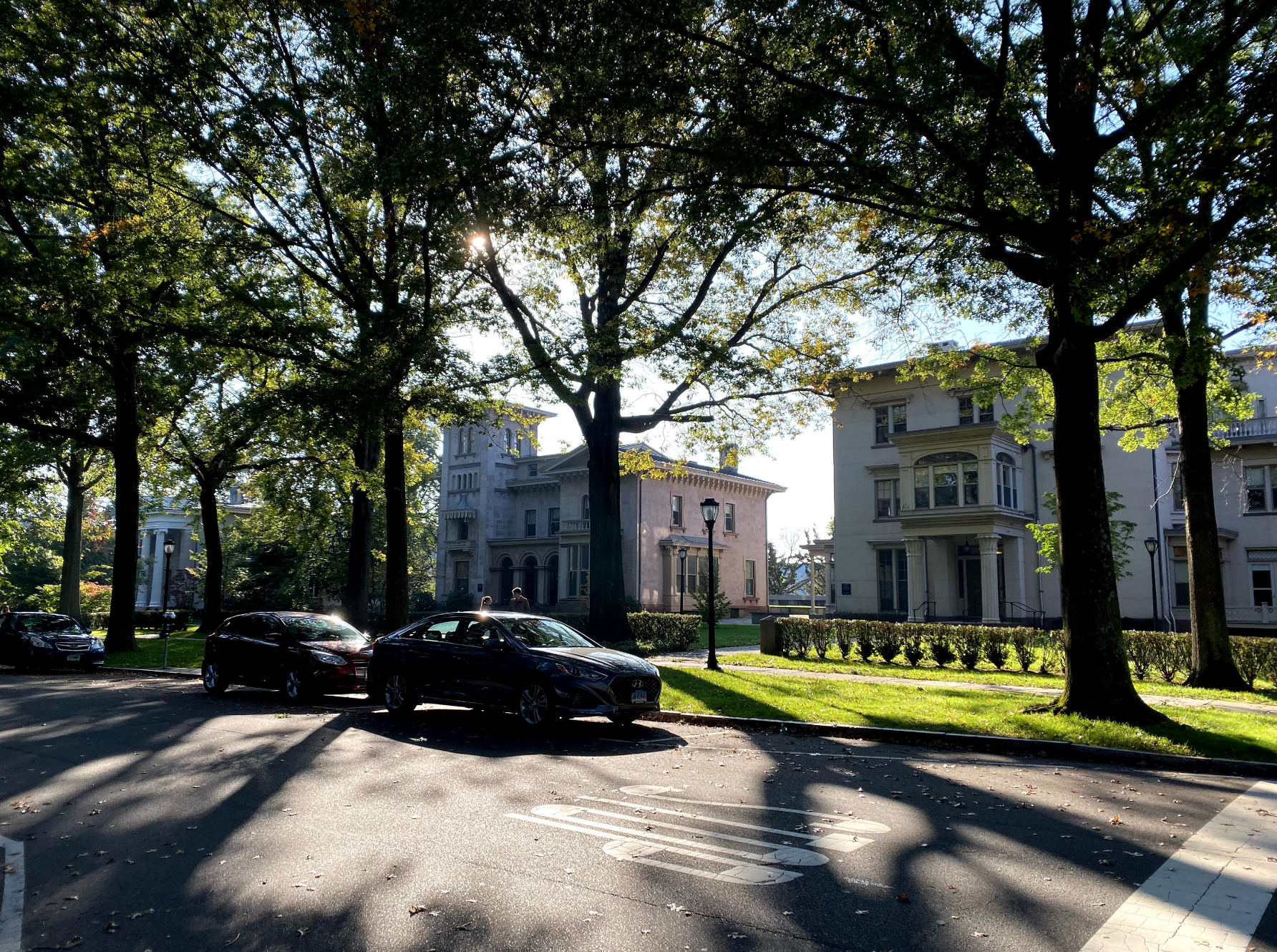
Vaibhav Sharma, Photo Editor
On Tuesday morning, individuals from around the world tuned in for the fourth talk in the Yale Development Dialogue series, titled “Green Pathways Out of Poverty.”
Co-sponsored by the Yale Economic Growth Center, the Jackson Institute for Global Affairs and the South Asian Studies Council at the Macmillan Center, the talk focused on the economic, political and historical motivations behind the relationships between poverty and climate change. The hour-long event was moderated by Catherine Cheney ’10 GRD ’10, a senior reporter at Devex covering sustainable goals, and offered viewers the opportunity to hear from four distinguished individuals in academia and public service.
One such panelist was Sunil Amrith, professor of history and chair of the South Asian Studies Council. Amrith, whose research focuses on the histories of environment, migration and public health in South and Southeast Asia, stressed the importance of historical context in understanding contemporary perspectives on poverty and climate change.
“Today, climate change and a whole range of other environmental crises present perhaps the most serious obstacle of all to poverty reduction and to large numbers of people being able to live lives of dignity,” Amrith said during the talk.
In the words of another panelist, Director of the Yale Economic Growth Center and professor of Economics Rohini Pande, “the ones who are affected the most … are the ones with the least power.”
Both Amrith and Pande argued that in the current age of climate policy, although society still has more room to grow and develop empathy, there is a broader consensus that those who will feel the greatest impacts of climate change are the ones who are least involved in its perpetuation.
However, according to Amrith, this was not always the case. While conducting his research, he was surprised to find that the belief that climate change and energy consumption will impact poor individuals more than socioeconomically advantaged individuals is a relatively new line of thinking.
Also on the panel was Jackson Institute senior fellow Rory Stewart. As the former Secretary of State for International Development of the United Kingdom, Stewart’s background lies in both politics and academia. During his time as secretary, Stewart doubled the U.K.’s investment in international development and the environment.
As someone with experience in politics, Stewart also offered a unique perspective on the practicality of investing more heavily in international development and poverty reduction. For instance, despite the financially secure infrastructure and public support the Department for International Development had during Stewart’s role as secretary, his investment plans were met with heavy skepticism within the agency.
“[There is an] instinctive suspicion of projects to do with nonhumans, that’s a very important thing, that generally when we’re talking about development, we’re talking about humans,” Stewart said. “People find it uncomfortable being made to talk about animals, plants or even habitats.”
Stewart’s experience and assessment of the situation spoke to a larger concern shared by the panelists: that corporations, governments and individuals too often see development and environmentalism as separate from one another. According to the panelists, a larger, more global shift — away from the idea that care for the environment impedes the process of advancement — is necessary to combat climate change.
Another key takeaway from the talk was reflected in the sentiments of the fourth and final panelist, Julie Livingston, a professor of social and cultural analysis and history at New York University and the author of “Self-Devouring Growth.” Livingston studies the intersection of history, anthropology and public health, with a focus on public health and sustainability in Botswana. Livingston spoke about the pervasiveness of carbon emissions in conversations surrounding energy and climate change.
“We have to recognize that carbon is important but it’s not the only problem, we have a whole set of interlinked problems,” Livingston said. “Toxicity and pollution, the problem of waste, the loss of biodiversity, topsoil erosion and they fit together into a web that is synergistic and extremely threatening to people who are already living in poverty.”
Her experience working in these diverse yet interconnected fields has also shown her both the dangers and the consequences of continued energy development, she said. According to Livingston, the current system of energy growth is not sustainable, and individuals need to shift their thinking around how energy will work.
The four panelists agreed that what policymakers, historians, the private sector and society at large need to understand and accept is a larger shift toward recognizing climate change and poverty mitigations as two sides of the same coin. To solve one, humans need to address the other.
The recording of the event will be available on the Yale Economic Growth Center website.
Marissa Blum | marissa.blum@yale.edu










